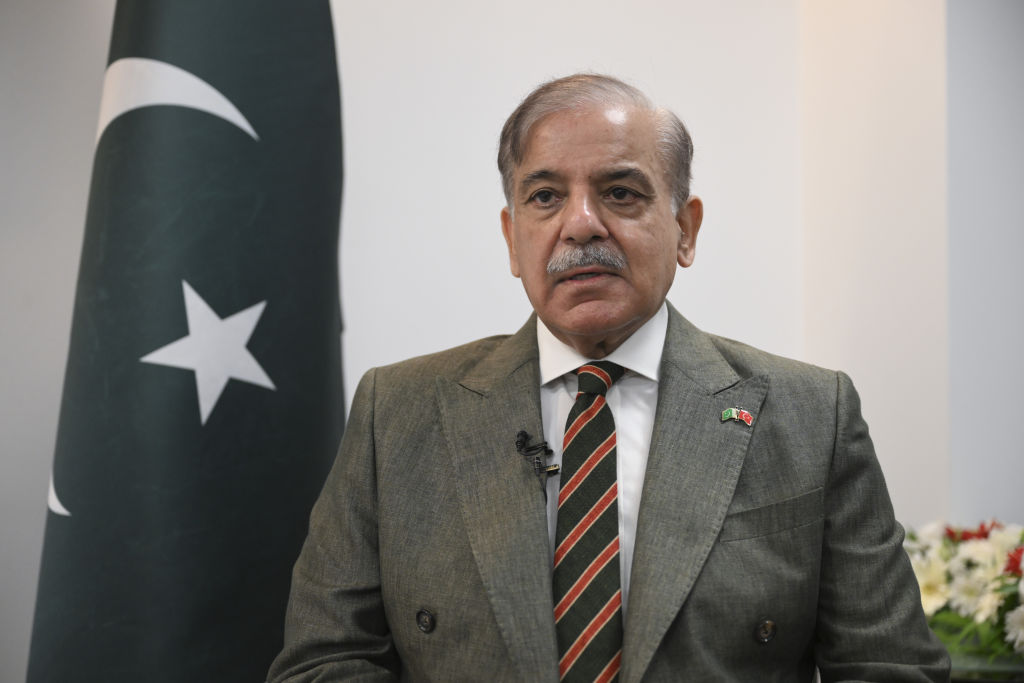Pakistan’s Prime Minister Shehbaz Sharif called on Wednesday for the expansion of China’s Belt and Road Initiative (BRI) to enhance regional cooperation at a meeting of the Shanghai Cooperation Organisation (SCO) in Islamabad.
He was addressing a heads of government meeting of the SCO, a Eurasian security and political group formed in 2001, being attended by officials from 11 countries, including host Pakistan, China, Russia and India.
“Flagship projects like the Belt and Road Initiative of President Xi Jinping…should be expanded focusing on developing road, rail and digital infrastructure that enhances integration and cooperation across our region,” Sharif said in his speech as the chair of the meeting.
The BRI is a $1 trillion plan for global infrastructure and energy networks that China launched a decade ago to connect Asia with Africa and Europe through land and maritime routes. More than 150 countries, including Russia, have signed up to participate in BRI since Xi unveiled it.
Beijing’s rivals see the BRI as a tool for China to spread its geopolitical and economic influence.
Western countries, under the G7 platform, last year announced a $600 billion plans to launch a rival connectivity infrastructure development plan. BRI has also been criticised for increasing unsustainable debt in developing countries.
The China-Pakistan Economic Corridor (CPEC) is a part of the BRI and has seen Beijing pump in billions of dollars into the South Asian country for road networks, a strategic port and an airport.
Sharif said CPEC would also help enhance cooperation, adding that 40 percent of the world’s population lived in SCO’s 10 full member states. He also called for a special development funding mechanism under the SCO.
The SCO meeting is the highest-profile event hosted by the troubled South Asian nation in years. Seven prime ministers are attending, including Chinese Premier Li Qiang.
Sharif also said stability in neighbouring Afghanistan, which lies between South and Central Asia, was essential to fully realizing trade opportunities for the SCO member states.
Also in attendance was India’ External Affairs Minister Subrahmanyam Jaishankar, who is the first Indian foreign minister to visit Pakistan in nearly a decade with ties between the nuclear-armed rival neighbours continuing to be frosty.
No bilateral meeting has been planned, both sides have said, although Sharif and Jaishankar did have a short talk when the Indian official attended a dinner hosted by the Pakistani premier last night.
Jaishankar, in his speech at the meeting, congratulated Pakistan on the presidency of the SCO’s Heads of Government Council and extended India’s “full support” to Islamabad, according a transcript shared by India’s foreign ministry.
He said India supported regional cooperation but added that mutual respect as well as territorial integrity and sovereignty were essential.
“If activities across borders are characterized by terrorism, extremism and separatism, they are hardly likely to encourage trade, energy flows, connectivity and people-to-people exchanges in parallel,” he said in his speech.
He did not name any country, but New Delhi has long accused Pakistan of supporting an Islamist insurgency in the disputed Kashmir region. Pakistan denies this and says it only supports Kashmiri groups diplomatically. Islamabad in turn accuses Delhi of supporting militants inside its borders, which India also denies.
New Delhi has also been at odds with Beijing over border disputes.
(Reuters)




















